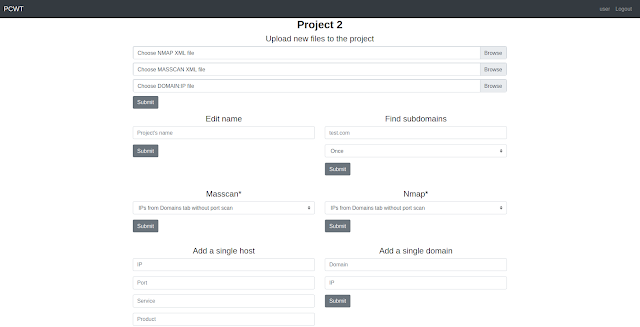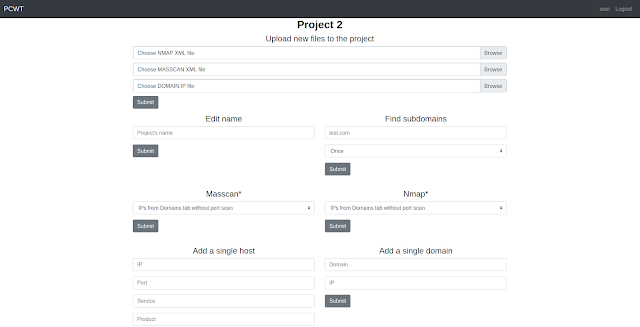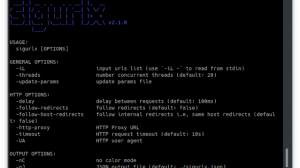[sc name=”ad_1″]
A web application that makes it easy to run your pentest and bug bounty projects.
Description
The app provides a convenient web interface for working with various types of files that are used during the pentest, automate port scan and subdomain search.
Main page
Project settings
Domains dashboard
Port scan
You can scan ports using nmap or masscan. The nmap is started with the following arguments:
nmap --top-ports 10000 -sV -Pn --min-rate 300 --max-retries 2 [ip]
The masscan is started with the following arguments:
masscan -p 1-65535 --rate 2000
Subdomain search
Amass and findomain are used to find subdomains.
Features
- Leave notes to host, port or domain.
- Mark host or domain with tags.
- Search by any field related with host, port or domain (tags and notes are included). Regexp is available.
- Different types of sorting ara available on almost all dashboards.
- Run port scan for all hosts, hosts without port scan or custom list.
- Create tasks for subdomains search (every 2 hours, every 5 hours, every day or every week). You can also disable and enable them on demand using
Subdomain tasksdashboard. - Different types of export are available.
- Notifications about the start and end of the scan, as well as about new found domains can be sent to Telegram. Update the
config.pywith your chat id and token.
Install from sources
NOTE 1: Change the paths for amass, findomain, nmap and masscan in config.py before running commands. NOTE 2: The app must be started as root if you want masscan to work.
apt install python3 python-venv python3-pip
git clone https://github.com/ascr0b/PCWT
cd PCWT
python3 -m venv env
source env/bin/activate
pip3 install -r requirements.txt
flask init-db
flask crontab add
export FLASK_APP=app
flask runThe app is available at http://127.0.0.1:5000
[sc name=”ad-in-article”]
























Add Comment